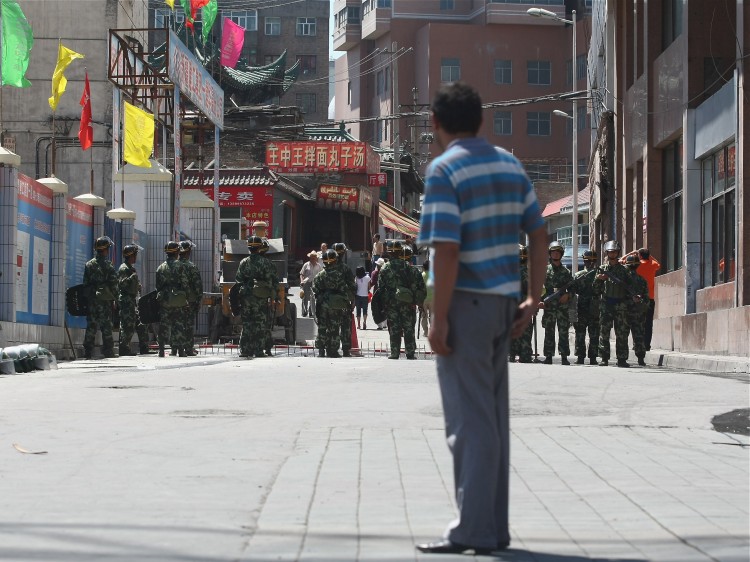China’s Crackdown in Xinjiang Persists 3 Years After Unrest
A top Chinese Communist Party (CCP) official who oversees the restive Xinjiang region vowed to deal with Uyghur protests with “iron fists.”

A Uyghur man looks at Chinese policemen blocking a street on July 9, 2009 in Urumqi, the capital of Xinjiang Uyghur autonomous region, China. Guang Niu/Getty Images

Jack Phillips
Breaking News Reporter
|Updated:
Jack Phillips is a breaking news reporter who covers a range of topics, including politics, U.S., and health news. A father of two, Jack grew up in California's Central Valley. Follow him on X: https://twitter.com/jackphillips5
Author’s Selected Articles





